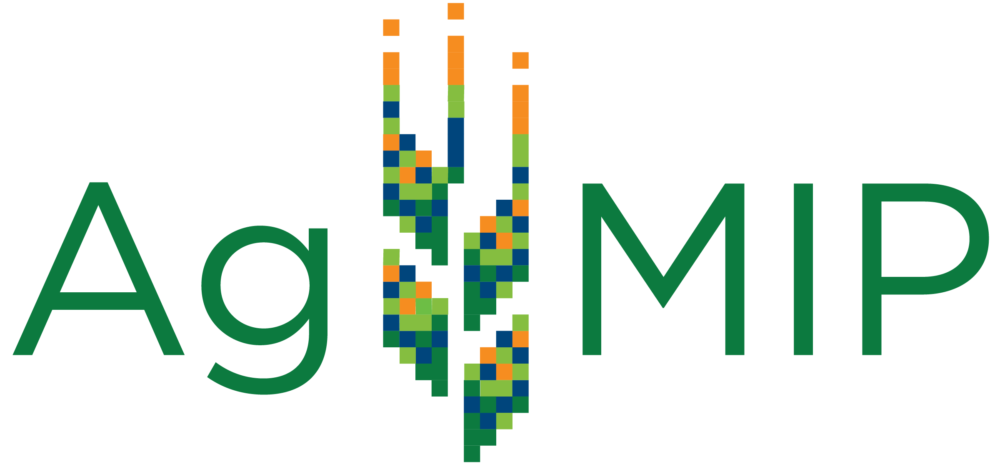Collaboration Agreement between AgMIP and CIRAD

With this agreement, the Agricultural Model lntercomparison and Improvement Project (AgMIP) and CIRAD, the French Agricultural Research Centre for International Development, commit their intent to collaborate in current and emerging research areas, as elaborated below.
CIRAD is a major international organization that works with developing countries to generate and pass on new knowledge, support agricultural development and fuel the debate on the main global issues concerning agriculture. Research in partnership is CIRAD’s fundamental working principle and the keystone of its operations. CIRAD’s values determine its choices and guide its approach, and enable it to produce, transmit and evolve while respecting past achievements, the value of experience and the steadfastness of expertise. CIRAD values include sharing, quality research, being open, and a commitment to development.
AgMIP is a major international effort linking the climate, crop, livestock, nutrition, and economic modeling communities with cutting-edge information technology to produce improved crop and economic models and the next generation of climate impact projections for the agricultural sector. Its mission is to improve substantially the characterization of food and nutrient security as affected by climate variability and change, and to enhance adaptation capacity in both developing and developed countries. AgMIP conducts its research with principles that are based in scientific integrity, openness & inclusion, advocacy, transparency, collaboration, and resiliency & flexibility.
Collaboration means the intent of AgMIP and Cirad to
- Honor shared principles and values while abiding by policies established by their own governing body.
- Engage the other party in scientific meetings relating to current and emerging areas or priority research.
- Propose joint activities and mutually agreed-upon AgMIP Protocols to conduct them (procedures and common protocols will be outlined in separate documents; see also Article 1).
- Acknowledge the other party in reference to collaborative activities, events, outputs, or outcomes.
- Permit each party to use the other’s logo, web resources, and products resulting from joint activities or outcomes.
- Share stories about results deriving from the collaboration in blogs, tweets, and other media.
- Keep each other informed of activities and opportunities for joint research in regular (quarterly) teleconferences and meetings, exchange of newsletters, etc.
The contact address for CIRAD is cirad_agmip@cirad.fr, which goes to Drs., Barthelemy, Affholder, Corbeels and Adam.
The contact address for AgMIP is coordination@agmip.org, which goes to Drs. Rosenzweig, Jones, Hatfield, Antle and Mutter.
This agreement is not legally binding nor does it establish enforceable rights for CIRAD or AgMIP. It documents the good faith intentions of the below signed to establish a more comprehensive and substantive partnership through the design and implementation of mutually agreed activities. Specific activities of the partnership will be proposed and advanced under separate cover (see also Article 1). The document will be revisited on a bi-annual basis and updated as needed; it is a living document that will evolve with the partnership.
Article 1: A new CIRAD – AgMIP – CCAFS activity to improve the characterization of low-fertility / low-input agricultural systems in the (sub)tropics and improve climate change impact projections
Context
CIRAD, in collaboration also with CGIAR centers and CCAFS (CGIAR’s Research Programme on Climate Change Agriculture and Food Security), proposes to start a new AgMIP activity on crop growth model intercomparison and improvement for interactions of climate change and low soil fertility/low input cropping systems in the (sub)tropics. In many systems, especially in sub-Saharan Africa, soil fertility is low due to inadequate use of fertilizer inputs and ongoing soil degradation. This affects the crop responses to climate change. Low soil fertility systems with minimal fertilizers may be less sensitive to weather and CO2changes, given other crop growth limiting factors. At the same time, low-input farmers have lower ability to cope with climate change, compared to well-capitalized, high-input farms. Climate change is also likely to strongly affect soil fertility and the ability of crops to acquire and utilize soil water and nutrients in the (sub)tropics. Uncertainty in predicting crop yields under climate change by current crop models is probably highest for low-input cropping systems of sub-Saharan Africa.
Objective
The main objective of this new activity is to improve the predictive capacity of crop models under climate change in low soil fertility/low input cropping systems of the (sub)tropics.
The specific objectives are to:
- Collate available data for crop growth model intercomparison and improvement in the (sub)tropics;
- Improve cropping systems models for interactions of climate change and low soil fertility/low input cropping systems;
- Assess potential agricultural adaptation strategies for smallholder farmers to cope with climate change.
Approach
Teams will follow the two-track science approach used in AgMIP (track 1: Model Intercomparison and Improvement, and track 2: Climate Change Multi-Model Assessment). The following six main activities will be developed:
- Identification of pilot sites with existing data and construction of databases according to the AgMIP format/standard;
- Intercomparison of crop models (as many as possible) for a set of crops (maize, sorghum, pearl millet, legumes) with special attention to the soil model components;
- Improvement of models for cropping systems of smallholders (soil C, soil N and P dynamics, crop residue dynamics, carry-over effects, weeds-crop competition, etc.);
- Assessment of impact of climate change on crop yields in low soil fertility/low input cropping system;
- Identification and assessment of adaptation options for smallholder farmers to cope with climatic change; and,
- Strengthening partnerships and enhance local capacity in crop modeling for the (sub)tropics
Collaboration and Funding
This activity will built on the experience of the crop teams in AgMIP. We will also link up with on-going activities of the AgMIP ‘Soils and Crop Rotation’ Initiative and the DFID-funded teams working in sub-Saharan Africa. Furthermore, we will search for strong links with past and on-going activities on climate smart agriculture practices and climate risk management carried out by CCAFS. Collaborative efforts will be developed to raise new funding.
